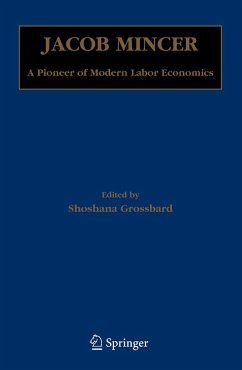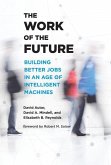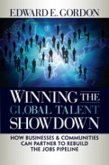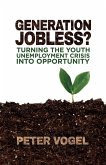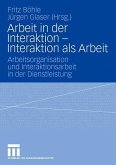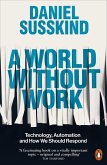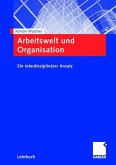This volume contains essays by or about Jacob Mincer who, along with Gary Becker, is a founding father of modern empirical labor economics. His methodology analyzes the economics of the working world, and his human capital model is a fundamental tool in empirical economics.
This is a very personal collection. It not only examines Mincer's research; it also assesses the impact of his work on the careers of several important economists and includes portions of Mincer's correspondence with those scholars.
Shoshana Grossbard is professor of economics at San Diego State University and founding editor of the Review of Economics of the Household. She graduated from the University of Chicago where she studied New Home Economics with Jacob Mincer and Gary Becker. Professor Grossbard teaches and lectures throughout the world and is the author of five previous books and more than 40 journal articles.
BY SHOSHANA GROSSBARD In 2004, the Society of Labor Economists announced its ?rst Award for Lifetime Achievement in Labor Economics. Jacob Mincer and Gary Becker were the - recipients. The award was then renamed the Jacob Mincer Award. Two years earlier, Mincer was the ?rst to win the IZA Award in Labor Economics. These awards recognize Mincer's primary role in shaping labor economics, but they only hint at the breadth of his reputation and accomplishments: he is a member of the National Academy of Sciences, and has been appointed a Fellow of the American Statistical Association and the Econometric Society, as well as a distinguished Fellow of the American Economic Association. Mincer is one of the principal architects of Modern Labor Economics (MLE), a premier application of micro-economics in the spirit of Chicago's positive e- nomics. There are typically three steps to such application: (1) a theoretical model is developed or borrowed, leading to testable implications; (2) empirical work is p- formed; and (3) the ?ndings are analyzed in light of the theoretical analysis. All of Mincer's work has followed those steps, even when this was a rare occurrence. When he started, in the mid 1950s, labor economics was a sub-?eld of institutional e- nomics. Labor economics is now a major ?eld of economics. As a result of his work and that of other pioneers, MLE became an example for other applications of e- nomic models.
Hinweis: Dieser Artikel kann nur an eine deutsche Lieferadresse ausgeliefert werden.
This is a very personal collection. It not only examines Mincer's research; it also assesses the impact of his work on the careers of several important economists and includes portions of Mincer's correspondence with those scholars.
Shoshana Grossbard is professor of economics at San Diego State University and founding editor of the Review of Economics of the Household. She graduated from the University of Chicago where she studied New Home Economics with Jacob Mincer and Gary Becker. Professor Grossbard teaches and lectures throughout the world and is the author of five previous books and more than 40 journal articles.
BY SHOSHANA GROSSBARD In 2004, the Society of Labor Economists announced its ?rst Award for Lifetime Achievement in Labor Economics. Jacob Mincer and Gary Becker were the - recipients. The award was then renamed the Jacob Mincer Award. Two years earlier, Mincer was the ?rst to win the IZA Award in Labor Economics. These awards recognize Mincer's primary role in shaping labor economics, but they only hint at the breadth of his reputation and accomplishments: he is a member of the National Academy of Sciences, and has been appointed a Fellow of the American Statistical Association and the Econometric Society, as well as a distinguished Fellow of the American Economic Association. Mincer is one of the principal architects of Modern Labor Economics (MLE), a premier application of micro-economics in the spirit of Chicago's positive e- nomics. There are typically three steps to such application: (1) a theoretical model is developed or borrowed, leading to testable implications; (2) empirical work is p- formed; and (3) the ?ndings are analyzed in light of the theoretical analysis. All of Mincer's work has followed those steps, even when this was a rare occurrence. When he started, in the mid 1950s, labor economics was a sub-?eld of institutional e- nomics. Labor economics is now a major ?eld of economics. As a result of his work and that of other pioneers, MLE became an example for other applications of e- nomic models.
Hinweis: Dieser Artikel kann nur an eine deutsche Lieferadresse ausgeliefert werden.

